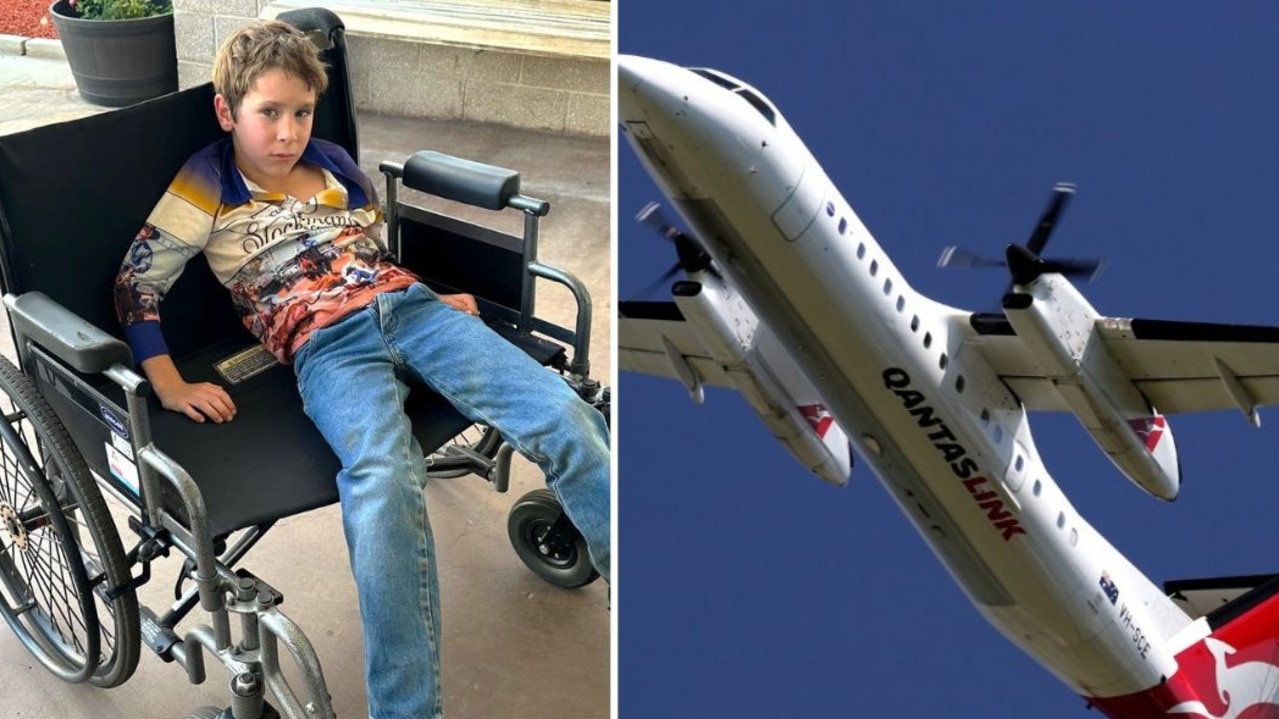‘First confirmation’: Pygmy blue whales tracked for 193 days, heading towards Kerguelen Plateau
Two pygmy blue whales tagged by JCU have taken their GPS trackers on a crazy ride into the deep south - and confirmed a long-held theory. See exactly where these guys went.
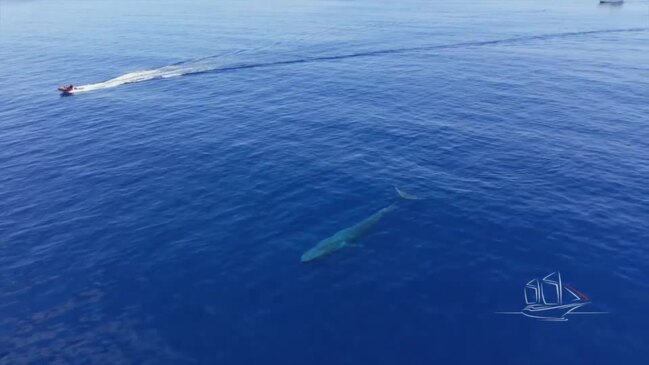
Townsville
Don't miss out on the headlines from Townsville. Followed categories will be added to My News.
Two pygmy blue whales tagged in tropical waters off an Indonesian city have opened up a Pandora’s box of information for JCU researchers.
One whale immediately bolted, swimming an almost straight line from the Suva Sea above Broome deep into the ocean towards the volcanic Kerguelen Plateau - a huge underwater formation and former whaling and sealing hunting ground off the coast of Antarctica.
The whale was just 500km away from reaching the plateau when his tracker died after 59 days - potentially because it fell off.
Lead researcher and James Cook University Earth and Environmental Sciences lecturer Putu Mustika said the data finally confirms the Broome-visiting whales travel away from Australia and into sub-Antarctic waters.
“We can’t say for certain that the whale actually reached the Kerguelen Plateau, but that is the direction it was travelling in when the transmitter stopped,” Dr Mustika said.
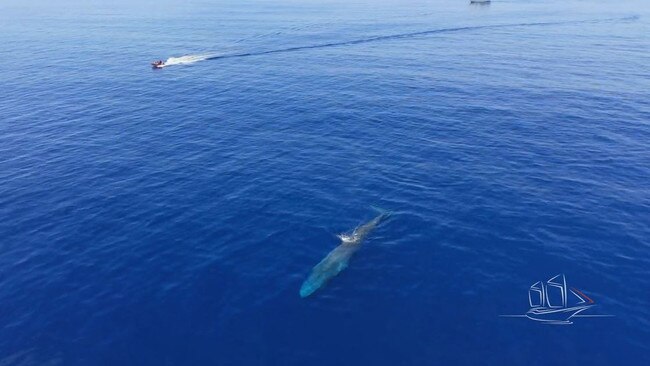
“Our paper presents the first confirmation that this pygmy blue whale population travels beyond the southern waters of Australia.”
Before this, the only evidence researchers had of the species south of Australia was some recordings of “potential” pygmy blue whale calls in 2010 and 2013 off the Crozet Islands and New Amsterdam Islands.
As it happens, both islands are located around 1000kms from the northern end of the Kerguelen Plateau.
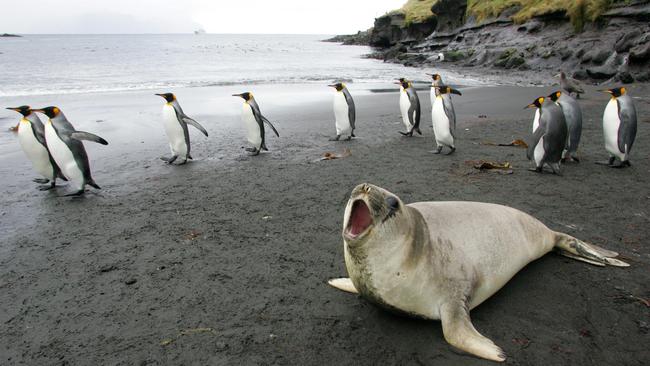
The second whale tagged by the JCU team in 2021 also offered a feast of data when its GPS tracker continued to ping for 193 days, or just over six months.
This whale went just as far south as the plateau whale, but it’s far longer battery life meant researchers were able to watch it turn around once it reached the sub-Antarctic zone and travel all the way back to Indonesia.
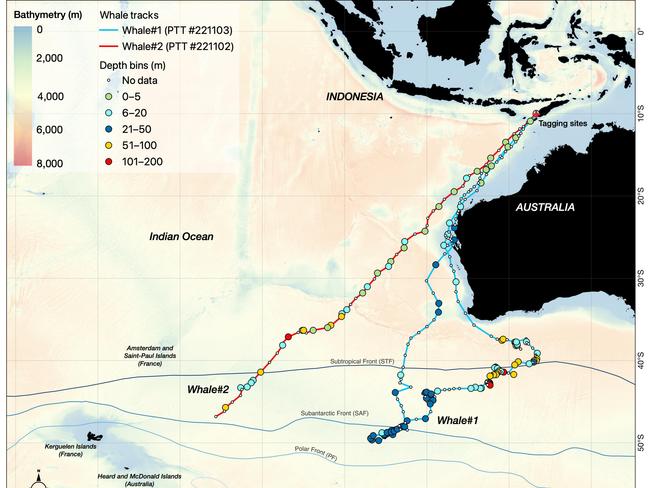
Dr Mustika said she suspects both whales were looking for food in the sub-Antarctic zone, given humpbacks whales from Western Australia do the same thing.
“An increasing number of studies have continued to highlight the marine connectivity between Indonesia and Australia,” Dr Mustika said.

“For Indonesia, these pygmy blue whales travelled through a busy marine transportation lane west of Kupang, which necessitates conservation strategies such as regular monitoring and ‘go-slow’ zones. For Australia, these animals travelled through offshore gas mining locations and discussions between the government and the mining industry are required to protect this species from any adverse impacts.”
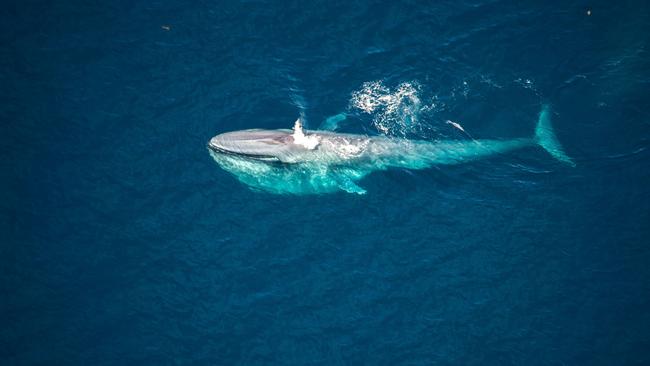
Past GPS tracking of pygmy whales had failed to capture such extreme southern trips.
Pygmy blue whales are a subspecies of blue whale who were driven north by enormous amounts of glacial ice during the last ice age, and separated from their bigger cousins.
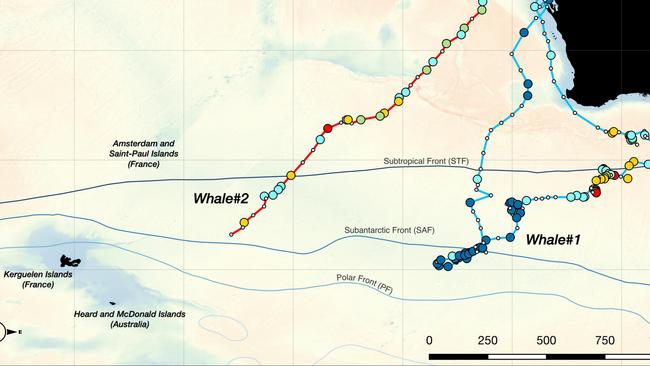
The species is very reclusive - in 2021 a new population of pygmy blue whales was ‘potentially’ discovered around the Chagos Archipelago south of the Maldives, after their songs were captured by audio recorders set up to report atomic bomb tests.
Dr Mustika’s findings were published on August 15, 2024 in Marine Mammal Science.
The study involved researchers from JCU, Reef Check Indonesia, Cetacean Sirenian Indonesia, Elasmobranch Institute Indonesia, Muhammadiyah University Kupang, and the National Marine Conservation Area Agency.
The Indonesia Climate Change Trust Fund funded the study, while tourism vessel Pindito gave in-kind and technical support during the tagging mission.
More Coverage
Originally published as ‘First confirmation’: Pygmy blue whales tracked for 193 days, heading towards Kerguelen Plateau




